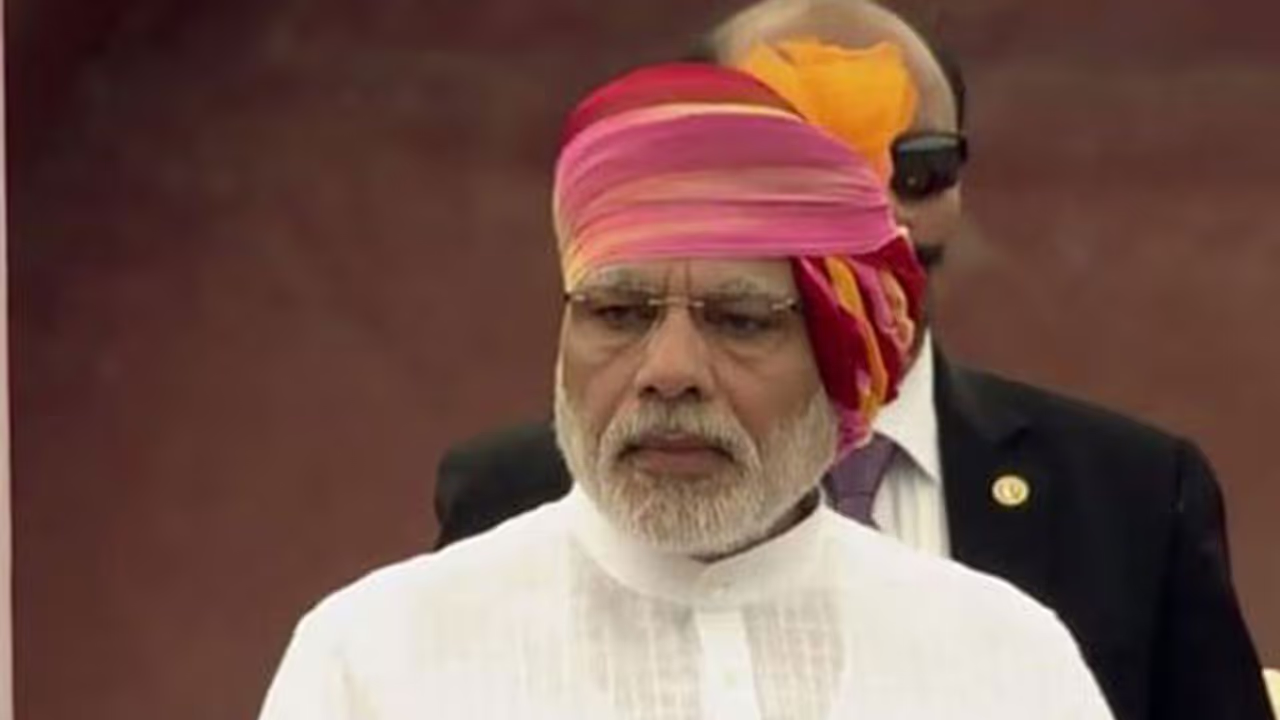The turban was slightly muted this year with streaks of pink, red and saffron but India’s Prime Minister Narendra Modi seemed to be in competition with his predecessor in delivering amongst the most uninspiring and soporific speeches. Fifteen minutes into the address, Delhi’s chief minister, Arvind Kejriwal appeared to be dozing off. (Maybe he was practicing his recently acquired vipassana pose)

I wish Modi’s speechwriter had turned it around and started with his plea to the nation to denounce social discrimination. This alone would have sufficed even though it lacked sincerity.
Brothers and Sisters, we have to fight against the social evils. We have to rise above social evils. Every citizen will have to rise and only then we will able to make strong India. We cannot make a strong India without making a strong society. Only economic progress cannot guarantee a strong India- strong society is a guarantee for a strong India and a strong society is made by ensuring social justice. Strong society is built on the foundation of social justice and therefore it is our responsibility that we give emphasis on social justice. Be it Dalit, victim, exploited, deprived, tribal, villager or city dweller, educated, literate, small or big – all 125 crore countrymen are our family. And all of us will have to get together to take our country forward and we have to work in that direction only.
Except, he didn’t tell us how this is going to be achieved. Unlike lighting up homes and the economy of rural India.
He started by saying he won’t list his government’s achievements instead narrate the “work culture” that got so much work done, he ended up with a long boring list of self-promotion. He sounded like the CEO of “Team India” presenting a report card. Completely devoid of imagination, vision and wit. He kept repeating completion of ‘targets’ like a marketing executive.
He claimed the “speed” of this government has changed life of common person. That was like mocking the common person of India.
From railway connections to Jan-Dhan Yojana to LPG connections and LED bulb distribution, his was a pitch made to donors for funding.
He spoke about agriculture but didn’t have the courage to address farmer suicides. He spoke about Balochistan but refrained from Kashmir. He spoke about ‘reform’ and then ‘perform’ but missed the link of how to ‘transform'.
Narendra Modi’s political culture seems strangely frozen. A narrow focus on performances and touching upon some perceived flaws has obscured the larger debates that we ought to have.
By most measures the global economy has been in worst shape since the bubonic plague 500 years ago. The first step in any direction from here would be world leaders stop being in denial. Scoring a few cheap points against the Congress or neighbouring Pakistan is not what Independence Day speeches are made of.
Politics dominate our lives and we all have an opinion on politics. But all we have is contempt for them. There is a remarkable consensus about the uselessness of politicians. That is because they are all such a wrong bunch of people that you would want to avoid inviting to your homes. They are all moral cowards and across the world the tribe is eerily the same.
In this speech Modi sounded like a leader of the corporate-led globalization competing to fulfil the neo-liberal agenda of attracting foreign direct investment and securing economic prosperity. That in reality is a sum of social and economic inequality and irreversible environmental crisis. Modi like others as demonstrated in India@70 speech has set his political ambitions so low that we can barely begin to hope.
He like others knows that the age of cynicism is over and populism is back. The alternates wherever they are if at all are bankrupt of vision and strategy. What does that leave us with? Radical imagination to create new spaces to discuss, debate and create our future where individualism, democracy, equality, prosperity, peace, civil discourse and freedom exists.
KishalayBhattacharjee is a senior journalist and author. His most recent book is Blood on my Hands: Confessions of Staged Encounters (Harper Collins 2015). The views expressed here are his own.
